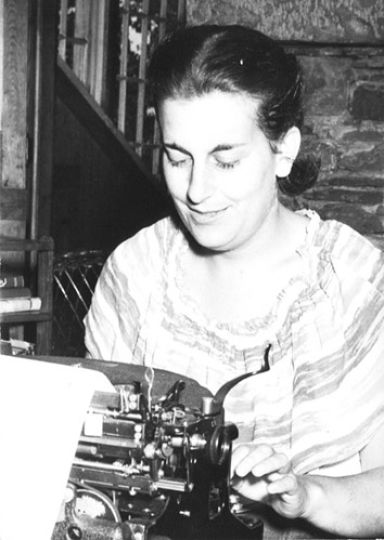ambyr
Since I’m reading Alec Nevala-Lee’s Astounding biography simultaneous to this, I’d like to throw in his anecdote about Judith Merril, for anyone who hasn’t read that book:
ambyr
“Judith Merril, whom Asimov described as ‘the kind of girl who, when her rear end was patted by a man, patted the rear end of the patter.’ He was speaking from experience, but he softened the facts — Merril had actually grabbed at his crotch.”
James Davis Nicoll
IT’S ON MY TO-READ LIST! Mind you, I’ve been meaning to visit what used to be the Spaced Out Library for decades without ever managing it.
ambyr
It and a few thousand other volumes, I’m guessing?
ambyr
Staring us off: In many ways, this felt like a very modern story. Matriarchal generation ship that may have lost sight of its mission, raising children in dormitories, with interior gardens? I have read that novel – more than once. It’s at this point almost cliche worldbuilding, and so I nod my head and go, yes, this is a familiar setting, what are you going to do with it? And the answer … the answer is nothing; Merril ends where I’d expect a more modern story to start. I can only assume that in context of 1958 this set-up would have felt novel enough to carry a story all on its own, instead of like a good basic foundation for a more in-depth tale. The opening line, “I wish, I wish, I wish” – by page three, I was perfectly certain that “I wish, I wish I was…” ended with “a girl.” It seemed so obvious that it took me a while to realize that it probably wasn’t supposed to be obvious; that the “He didn’t envy girls any more” on the final page is supposed to be the reveal of a twist. So: as a Young Reader, I found “Wish upon a Star” pleasant but lacking in punch. But if I’m looking at it in historical context, I can grant that we needed stories like this as stepping stones to get the genre to where it is today, and I’m grateful it exists.
Kris
Yes I am in a similar place to ambyr. Interesting idea but doesn’t do much with it. The generation starship that has lost its mission in different ways had become a standard trope of the genre by this point, from Wilcox’s “The Voyage That Lasted 600 Years” 19 years before this to Aldiss’ “Non-Stop” that arrived earlier the same year. The focus on children rather than the adult does make for an interesting change and I think does reflect how Merril as a writer often thought about the importance of the family and upbringing the way other writers in the period usually did not.
However, the story doesn’t really go anywhere and seems to rely on a very outmoded binary view of gender, we need women to be in charge because they are the nurturing ones but when we get down on to the planet men will be in charge because it is a hostile environment? Obviously it was written in the 50s but it does mean it doesn’t feel like it is one that resonates today for me.
Joe
I largely agreed with Kris & Ambyr on this one. Short stories in general, by their very nature, struggle to maintain interesting characterization, world building, and plot, as we would expect of a longer work; here it is the plot which is sacrificed, and yet the world building/premise, which is foregrounded, just… doesn’t feel that exciting. Presumably it was when Merrill wrote it! The inversion of gender roles which was, I guess, novel when the story was published felt safe and uninteresting to me — we end the story with our protagonist looking forward to a resumption of patriarchal heterosexual monogamy. Where is my polyamorous queer feminist utopia? Or any other indication that this new society is going to be any different from the old? Additionally neither of the core technological ideas of the story — generation ships and mind alteration — break new ground to me. This is the kind of story I normally would like, so I was surprised at how cold it left me.
ambyr
I will add that I thought all the stuff with the shadows – how life in the diffuse light of a starship left the protagonist longing for the organic patterns that only the growlights (or an actual planet) could provide – was a neat sensory detail, and not something I can remember other works I’ve read specifically addressing.
Nina
My reactions were similar to those of the other reviewers. I can see that the idea of reversed gender roles would have been innovative when this story was written, but it just doesn’t feel that way today. In particular, the idea of a male character wishing he was a girl might have been revolutionary. But my bigger problem with the story is that it sets up a potential conflict and then just ends. It almost felt like the first chapter of a much longer story.
ambyr
I looked it up, and it’s the second in a trilogy of linked stories; maybe I would find it deeper and more meaningful in the context of the greater work.(The others are “Survival Ship” and “The Lonely”)
Joe@Nina
- absolutely it felt like the first chapter of a novel! It’s the setup for a story about conflict between the men and women, or perhaps between those who come from earth and those who were born on the ship, but that story never happens. Nor is there a story about settling on the planet that they have apparently reached. We don’t even know whether they reach an inhabitable planet at all.

